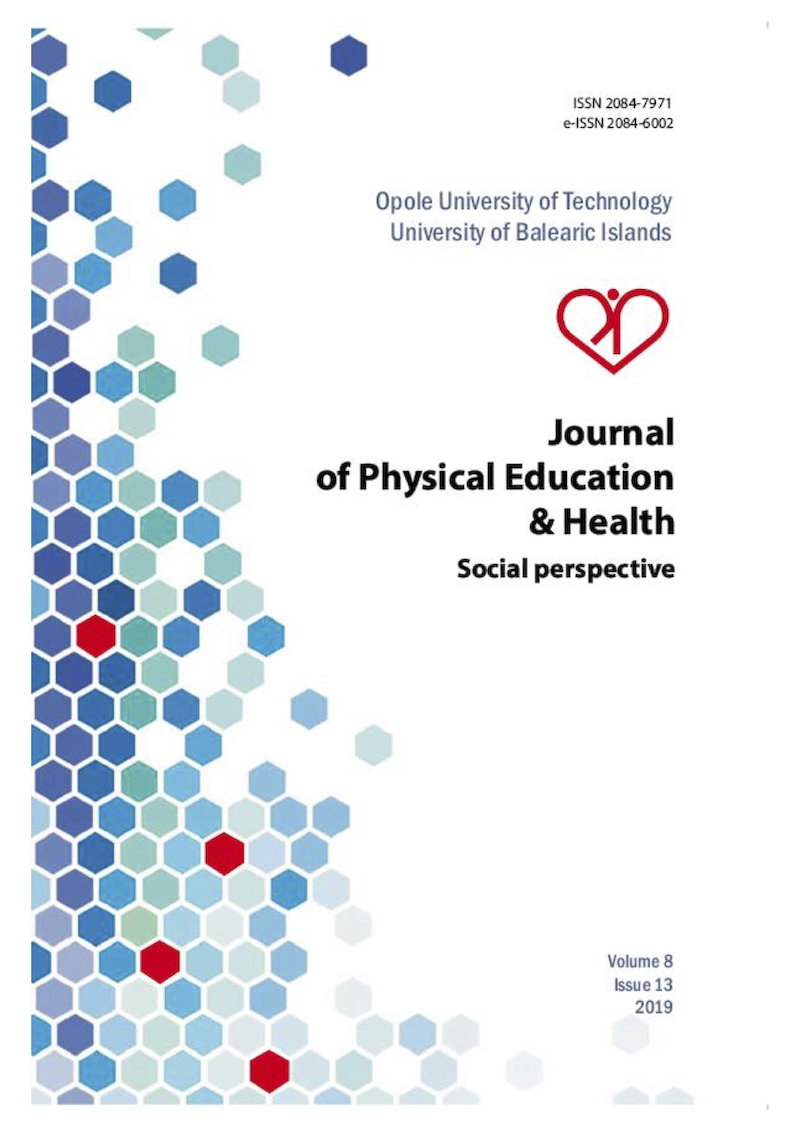Abstrakt
The aim of this study is to explore the effect of parental attitudes of students at the Faculty of Sports Sciences on their leadership behaviors.
For data collection, two instruments were used in the current study to explore the leadership behaviors of students and their parental attitudes. These were: ‘The Leadership Behavior Scale’ which was developed by Hemphill and Coons [8] and adapted into Turkish by Önal [10] and ‘The Parental Attitude Scale’ which was developed by Kuzgun and Eldeklioğlu [9]. These questionnaires were administered to a total of 590 students consisting of 376 male and 214 female students. For data analysis, the SPSS statistical packet program was used for frequency analysis, and independent t-tests, one-way ANOVA and Tukey test were run to find out the source of the difference among different groups of participants. In addition, correlation analysis was performed to reveal the relationship between the students’ leadership behaviors and parental attitudes.
The findings of the study showed that there was a statistically significant positive correlation between parental attitudes and leadership behaviors of the participants.
Based on this finding, it was revealed that the more the parental attitudes of the participants increased, the more the students’ leadership behaviors increased.
Bibliografia
Akbaba A. Erenler E. (2008). Otel İşletmelerinde Yöneticilerin Liderlik Yönelimleri ve İşletme Performansı İlişkisi. Turizm Araştırmaları Dergisi, Anatolia.
Atar E., Özbek O. (2009). Beden Eğitimi ve Spor Yüksekokulu Öğrencilerinin Liderlik Davranışları. Spormetre Beden Eğitimi ve Spor Bilimleri Dergisi, 7 (2), 51-59.
Baumrind D. (1991) The influence of parenting style on adolescent competence and substance abuse. Journal of Early adolescence,11, 56-94.
Can S. (2009). Determination of Leadership Tendencies of The Young People in Youth Association of The Turkic World in Relation to The Dimension of Showing Understanding. Procedia Social and Behavioral Sciences, 1677-1681.
Cüceloğlu, D., Davranışı I. (1998). Psikolojinin Temel Kavramları. Remzi Kitabevi, İstanbul.
Dokuyan M. (2016). 12.Sınıf Öğrencilerinde Algılanan Anne-Baba Tutumları İle Benlik Saygısı Arasındaki İlişkinin İncelenmesi. Ahi Evran Üniversitesi Sosyal Bilimler Enstitüsü Dergisi, 2 (2), 1-21.
Durukan E. (2003). Selçuk Üniversitesi Beden Eğitimi ve Spor Yüksekokulu I. ve IV. Sınıf Öğrencilerinin Liderlik Davranışlarının Karşılaştırılması, Yüksek Lisans Tezi, Konya: Selçuk
Üniversitesi Sağlık Bilimleri Enstitüsü, Antrenörlük Eğitimi Anabilim Dalı.
Hemphill J. K., Coons A. E. (1957) Development of the Leader behavior Description Questionnaire. In: R. M. Stogdill, A. E. Coons (Eds.), Leader Behavior: Its Description and Measurement. Columbus. The Ohio State University, Bureau of Business Research, Monograph No. 88.
Kuzgun Y., Eldeleklioğlu J. (2005). Anne-Baba Tutumları Ölçeği In: Y. Kuzgun, F. Bacanlı (Eds.), PDR’de Kullanılan Ölçekler. Nobel Yayın dağıtım, Ankara.
ÖnalA.(1979).KaraHarpOkulunda1978–1979akademikyılındaseçilmişbirsubayveöğrenci örneklemi üzerinde liderlik beklenti ve uygulamaları konusunda yürütülen bir bilimsel
araştırma. Yayınlanmamış doktora tezi, Hacettepe Üniversitesi, Ankara.
Sezer Ö. (2010). Ergenlerin Kendilik Algılarının Anne Baba Tutumları ve Bazı Faktörlerle İlişkisi. Yüzüncü Yıl Üniversitesi Eğitim Fakültesi Dergisi, 1, 1-19.
Solmaz ve Aydın (2018) Beden Eğitimi ve Spor Öğretmen Adaylarının Liderlik Özelliklerinin Bazı Değişkenlere Göre İncelenmesi, Uluslararası Sosyal Araştırmalar Dergisi, 8, 41.
Şerif, M. (1985). (Çev: Sandıkçıoğlu İ), Sosyal Kuralların Psikolojisi. Alan Yayıncılık, İstanbul.
Vural Ö. (2008). Okul Öncesi Eğitim Kurumu Yöneticilerinin Liderlik Özellikleri ve Empatik Becerilerinin İncelenmesi, Yayınlanmamış Yüksek Lisans Tezi. Üniversitesi Fen Bilimleri
Enstitüsü, Ankara.
Yavuzer H. (1990). Yaygın Ana-Baba Tutumları, Ana-Baba Okulu. Remzi Kitabevi, İstanbul, 105-122.
Yavuzer H. (1995). Ana-Baba ve Çocuk. Remzi Kitabevi, İstanbul.
Yeniacun, Y. (2018). Genç Yetişkinlerde Anne-Baba Tutumu ve Duygu Düzenlemenin Dikkat Eksikliği Ve Hiperaktivite Bozukluğu İle İlişkisi, Üsküdar Üniversitesi Sosyal Bilimler Enstitüsü Klinik Psikoloji Anabilim Dalı, İstanbul.

Utwór dostępny jest na licencji Creative Commons Uznanie autorstwa – Na tych samych warunkach 4.0 Miedzynarodowe.
Copyright (c) 2019 Array

